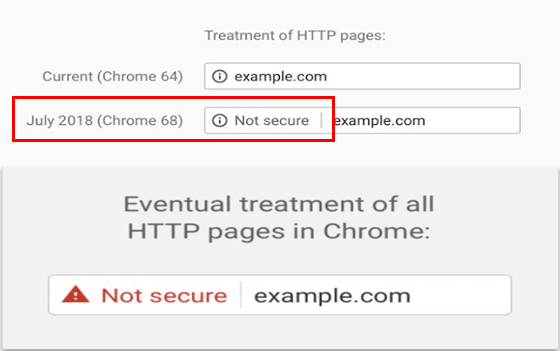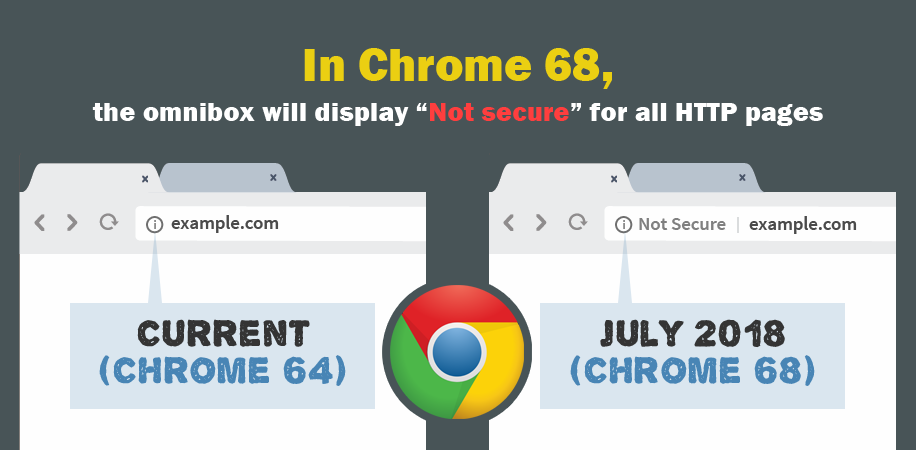Google is sending a stern warning to all website owners, be they blogs, businesses, government agencies, social networking, etc. The behemoth search engine, which sets the standards for the internet is making last calls to all website owners to secure their sites before the beginning of July 2018 when they roll out Chrome 68.
Google wants to makes all sites on the internet HTTPS secure, and it will do that by arm-twisting site owners into making the necessary changes to be secure. With the rollout of Chrome 68, Google is going to use its popular browser to let users know when they are visiting unsecured websites.
This move began last year when the Chrome browser started marking all HTTP web pages with forms as insecure; that includes HTTP websites accessed through incognito Window. In one year’s time, that change in Chrome has pushed up traffic to HTTPS sites by 68% in Android and Windows, and 78% in macOS and Chrome OS. Stats show that 81% of the top 100 websites use HTTPS security by default.
With the release of Chrome 68 slated for early July 2018, it means you have about a month to incorporate HTTPS security on your website or face the threat of your traffic taking a nose-dive. There is no running away from these changes, as Chrome remains the most popular browser on both desktop and mobile devices. The browser commands 60% of all internet traffic in the world.
Indeed, critics have argued that web developers design websites to work best with Chrome. The fact that Firefox back in January 2017, also implemented a policy that started marking form elements on HTTP sites as insecure, and goes further to warn users that their login information could be compromised. It seems there will be no option but for site owners to upgrade the security of their sites.
How will the rollout of Chrome 68 affect my traffic?
The fact that 60% of all internet traffic in the world passes through Google Chrome makes any change in browser policy very impactful to all sites across the globe. If your site is not running HTTPS by default come July 2018, your visitors will start seeing a flag next to your domain name at the address bar of your browser.
The site will give further warning to your visitors to refrain from giving their personal information on your site as they risk getting attacked by hackers looking to steal personal data. The fact that your site is operating without an SSL certificate means your site is vulnerable to content injection including visitor’s ISP injecting ads and malware on your site.
My site does not process payments or ask for information, do I still need the SSL Certificate?
Yes, and yes! All websites will need HTTPS encryption, and it will be for your own good to have SSL installed. That is because, Google is a bully, and if you fail to comply with their standard they will push your search engine ranking down to oblivion. All the while your competitors who have complied put on the fast lane to visitors’ eyeballs.
SSL certificate also comes with the additional benefit enabling your site access some of the powerful API tools visitors have come to expect from modern responsive sites. These tools include geolocation and audio/video streaming.
There is also the fact that SSL allows your site to perform better by operating over the HTTP/2, thus improving load time by as much as 40%. This security is especially important for sites that collect sensitive information from their visitors. Visitors always lookout for the green locks on the address bar before giving out their personal and critical information.



